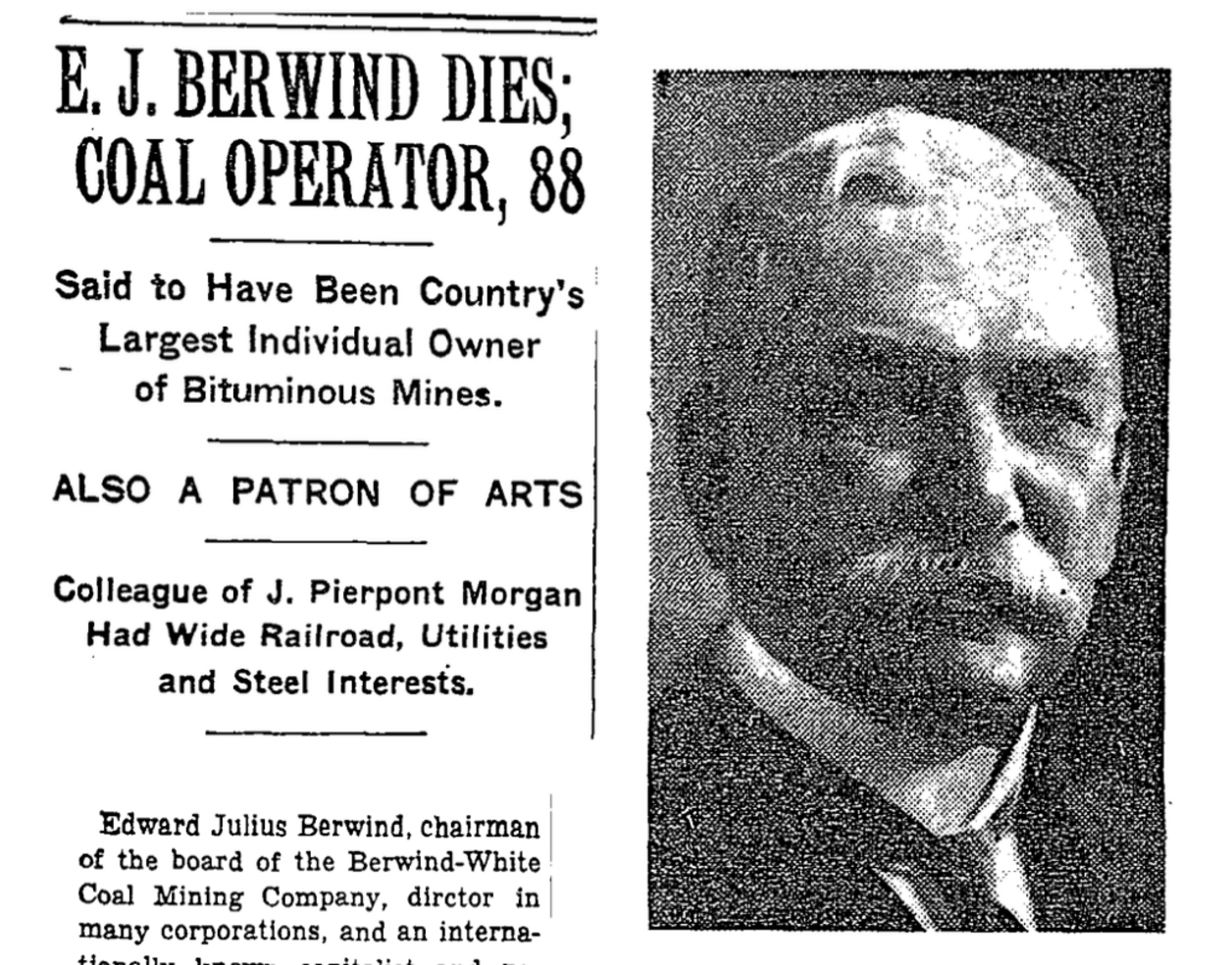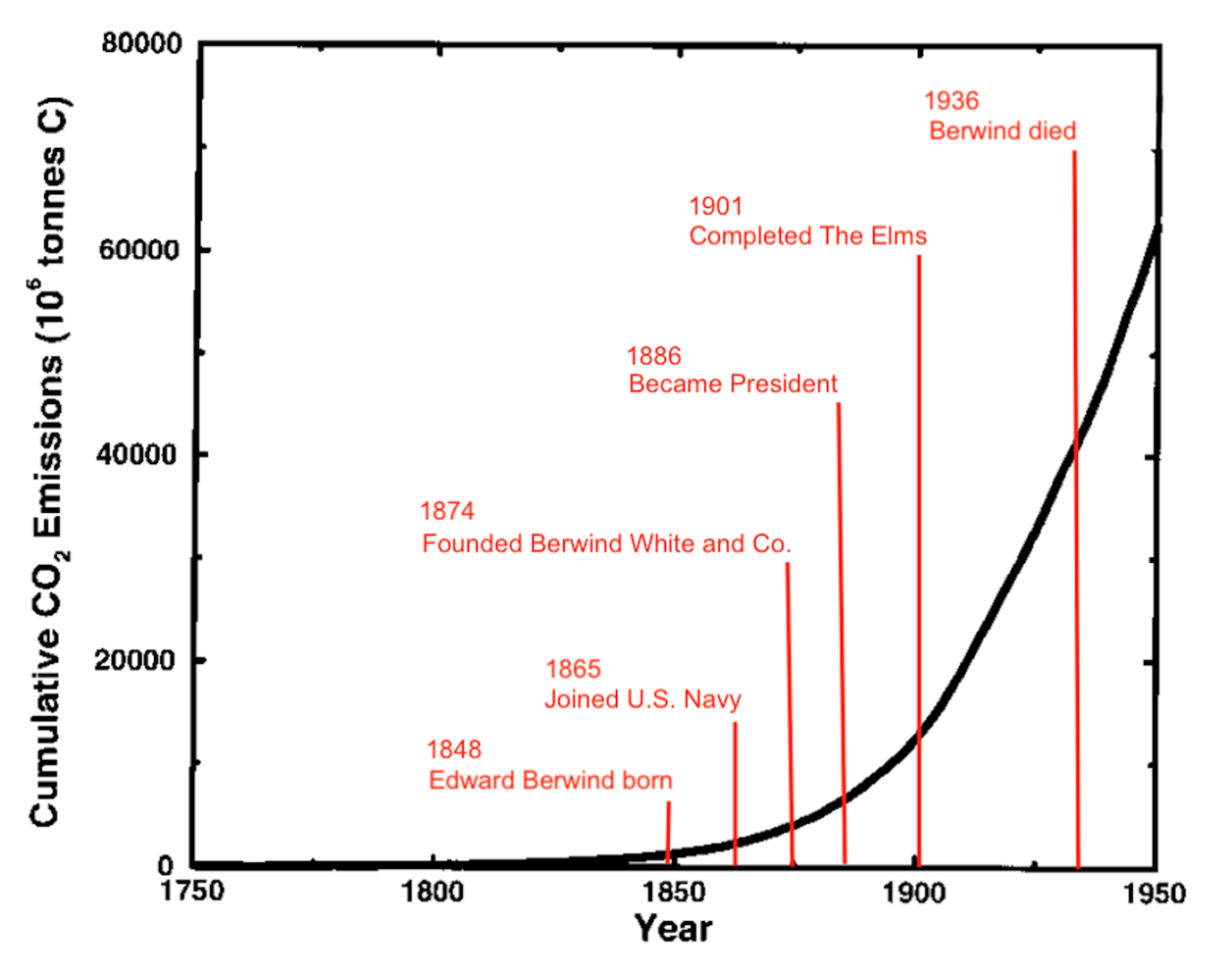Thesis: Aislinn Pentecost-Farren
As climate change effects increase, historic sites with connections to the fossil fuel industry assume new meaning. These sites offer opportunities to grow public recognition of climate change history and the ways our cultural values and economic systems feed the climate crisis.
This thesis investigates The Elms, coal magnate Edward Berwind’s 1901 mansion in Newport, Rhode Island, as an especially apt case study for interpreting the history of the climate crisis at historic sites and industrialist house museums. The thesis begins with an overview of recent literature on the interpretation of “hidden” and “difficult” histories at historic sites, climate change interpretation in the museum industry, and the state of climate change history as a field of study.The thesis then presents a brief history of Berwind’s coal business and an account of the businesses’ role in the current climate crisis. The Berwind-White Coal Mining Company played a significant role in global CO2emissions during the late nineteenth century when climate change began to accelerate. The thesis proposes ways the mansion could include the origins of climate change in its public interpretation, based on a material culture study of several artifacts that offer compelling opportunities to discuss climate crisis histories with visitors. These objects include a small-gauge train used to transport coal for the furnace, the grates and boilers of The Elms’ heating system, a commemorative medallion, and a letter left by a visitor whose father worked in Berwind’s mines. These artifacts are the basis for an appendix that provides narrative scripts that can be easily inserted into The Elms’ existing audio tour. Historic sites offer an experiential way for the public to encounter the history of climate change. In-person interactions with objects and spaces hold the potential to expand understanding and awaken people to ways that contemporary values and systems continue to worsen the planetary climate crisis humanity faces





